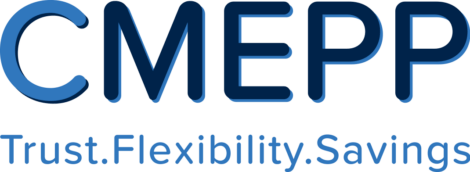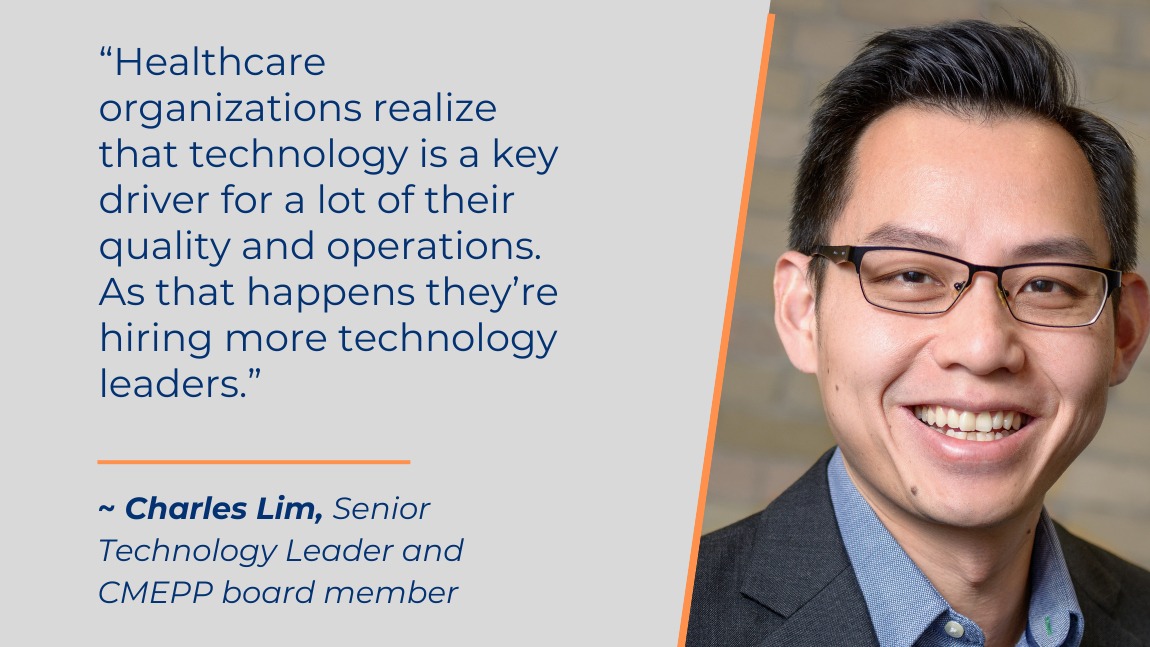He’s based in Toronto but Charles Lim gravitates to roles that give him international experience. One of CMEPP’s newest board members, Charles looks for diversity and challenge in his career choices, jobs that combine his skills in engineering, management, and technology.
You started out working as an engineer and also worked in technology and business development. Has engineering continued to be a large part of your working life?
Yes, engineering and technology are a big part of my work. But I realized early on in my career that to be a senior leader, I could not focus purely on my engineering skillset. In one of my positions, I was building a new technology for a consumer company that could be used for different markets. I suggested that we prepare the certification data and documents needed to expand into other markets such as aerospace – a move that would increase profit margins significantly.
However, I was asked to continue to focus on what I do best, the technology side. That’s when I decided I needed to expand my knowledge and credibility on the business side. So now, even when I’m working in the technology space, I know enough of the business that I can communicate well and hold my own against senior executives from other functions.
It looks like you have structured your career so you could work internationally. Was that something that you always wanted to do?
I love getting to know the world and yes, I have gravitated to international roles. I learn about different markets, diverse cultures, work with different types of people, and it allows me to have a unique and distinct perspective. I thrive on working alongside diverse global functions and teams while leveraging best practices across different industries. What I find interesting is that Canada and Toronto are truly diverse communities, so I’m able to use my international work and experience here as well.
What have you learned about working with global teams?
I think it’s broadened my understanding of how to work well with people from different functions, cultures and levels of seniority. I’ve also realized that as part of relationship-building, I need to respect the local cultural formalities wherever I go if I want to succeed. For example, working in Asia, especially China, the culture is deferring to the most senior member of the group. If I speak first, they tend to all agree, whereas in North America, we can have a fluent discussion and debate about better ideas. So, when I’m in Asia, I encourage everybody to speak first so I have the benefit of their feedback.
I am always interested when people have experience across multiple companies. It seems like that kind of diverse experience is part of your career. Do these transitions tend to happen naturally or did you consciously decide you wanted to build your career in this manner?
I like to be constantly challenged in my work. Usually when companies bring me on board, they have challenges, so I roll up my sleeves and start working. That’s exciting and I love seeing things start to come together. I normally design our team structure, processes and technologies to run independently of me so I don’t become a bottleneck and the group is scalable. Once everything starts to become relatively stable and more operational, and I find myself having more time, I look for new challenge to tackle within the company.
One of the reasons I stayed at IMAX for so many years was they were able to keep me challenged with many different experiences. Not only was I working in Toronto, LA and New York, but I also lived in Shanghai for a few years. It was an exceptionally good experience. I want to add value wherever I go.
What traits do you think are important in a leader?
I’m a big believer in trust, authenticity and competence. One of the first things I do with my teams is make sure I gain their trust. I don’t ask them to do something I wouldn’t be willing to do. My leadership nature is collaborative and I love working with cross-functional groups. Finally, I understand the importance of staying current with the most recent advanced technology trends so I can be relevant and continue to guide the team.
You won the NASA Goddard Space Flight Center Award of Excellence. Can you tell us about the award and how you won it?
Early in my career, I was working for MD Robotics, now named MDA Space. We were facing an unfortunate situation where several of our colleagues left the organization just before a key project presentation to NASA. There was no time to hire a new team and ramp them up. My manager was very worried but I assured him I would take care of it. Luckily for me, I was single at the time and motivated to see it through. So, I stayed in the lab seven days a week, working 12-14 hours a day for a few months. Fortunately, we got it done and the presentation went well. The client liked it and gave me the award.
That was the moment I realized that teams are especially important. Even with putting in long hours, I was barely able to deliver everything on time. I quickly realized there’s a limit to what I can do on my own.
I want to ask you about your involvement with CMEPP. What’s attractive to you about our mission?
I have some experience working with healthcare devices, having managed the technology team at eSight Canada. eSight provides electronic eyewear for people with visual impairment.
I’m a great believer in CMEPP’s mission because I think there’s a need for more efficiency and productivity in our healthcare system. CMEPP is playing a critical role in that, especially in providing administrative support to hospitals facing staff shortages. There’s a lot of opportunity for CMEPP to provide more value-added services to their Participant members. I welcome the opportunity to be part of an organization dedicated to making improvements in our healthcare system.
How do you look forward to contributing to the CMEPP board?
I’ve been fortunate to present to boards in several of the organizations I’ve worked for namely, IMAX and eSight, and I also sat on the board of a venture capital firm. CMEPP is fortunate to have board members with tremendous experience in Canadian healthcare and it’s an honour to work alongside such accomplished leaders. I look forward to contributing with my experience in diverse thinking, providing a global mindset (especially the U.S.), and my private sector technology experience.
I know that advancements in technology can move quickly, but the pace of change in healthcare is much slower. In terms of the challenges facing health care right now – resource issues and budget cuts – do you think healthcare is going to catch up?
Healthcare might not be as fast as other industries in terms of adopting innovative technologies but I’m 100% confident it will catch up. It has to, because a lot of the technological advances we’re seeing can improve the quality of healthcare we provide. I know we can’t casually adopt any type of recent technology out there – it must prove itself.
Healthcare organizations realize that technology is a key driver for a lot of the quality and operations they’re doing, and as that happens they’re hiring more technology leaders. In the next few years, I think we’ll see a lot more technology being rolled out to our hospitals and even within home care, which will be a catalyst in getting our whole healthcare ecosystem to catch up.





